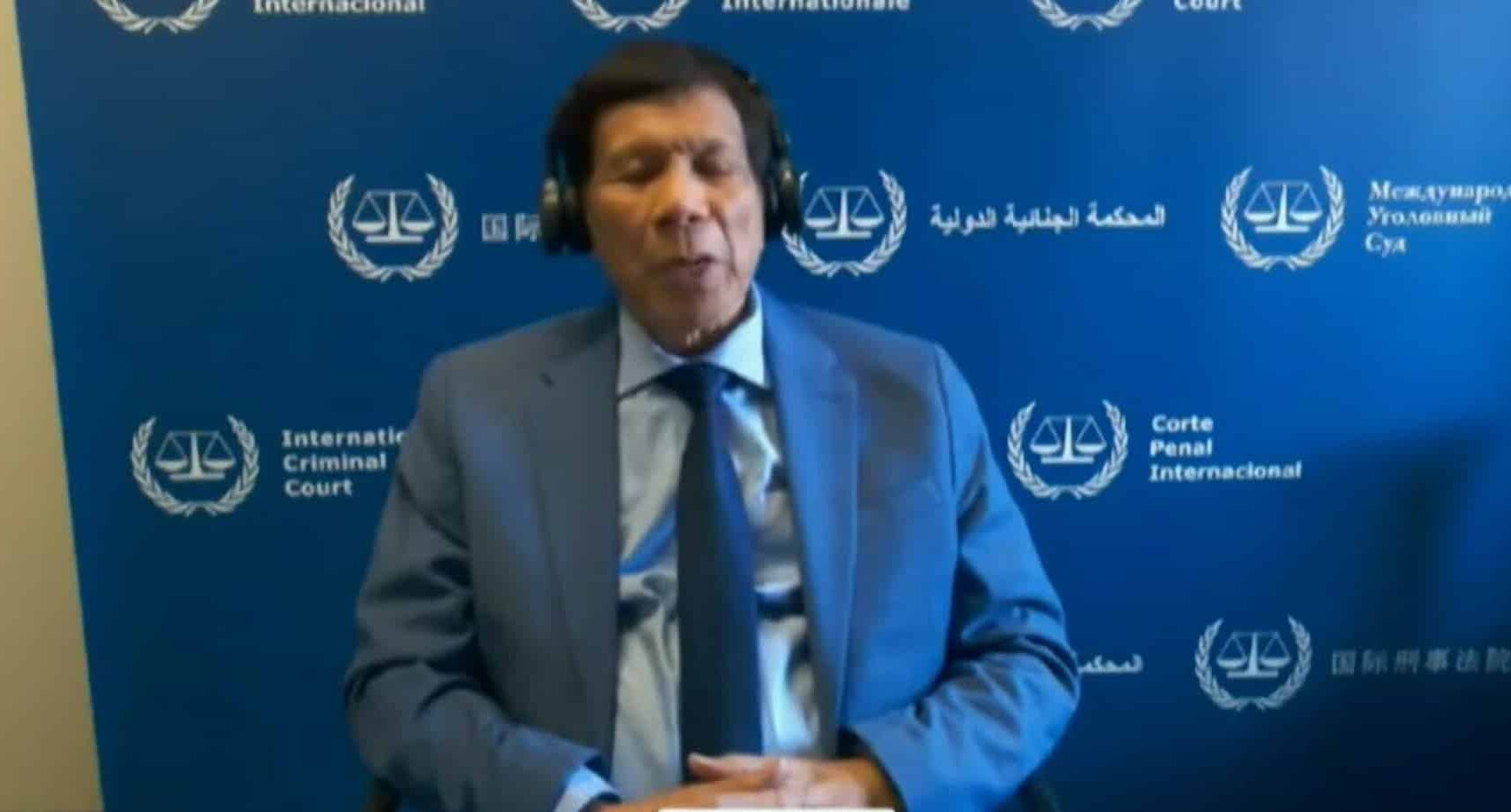
Former President Rodrigo Duterte at the International Criminal Court. Screen grab from ICC
MANILA, Philippines — Former President Rodrigo Duterte’s youngest daughter, Veronica “Kitty” Duterte, has filed a motion urging the Supreme Court to schedule oral arguments on the consolidated petitions for a writ of habeas corpus for her father, who is currently in the custody of the International Criminal Court (ICC).
A writ of habeas corpus is an order issued by a court directed to persons detaining an individual and commands them to produce the physical body of a person whose liberty is restrained and explain sufficient cause of detention.
In a 14-page petition filed on Monday, Kitty argued that the consolidated petitions for her father present “exigent constitutional issues” and novel legal questions, including whether the Supreme Court is stripped of its authority to issue a writ of habeas corpus once a person is held outside Philippine territory.
READ: Duterte kin press habeas petition, cite OSG recusal
“Oral arguments would allow this Honorable Court to probe the jurisdictional limits of a writ of habeas corpus and the enforceability of its writ on respondents within this Honorable Court’s jurisdiction, even when their actions extend beyond our national borders,” the motion read.
“Oral arguments would provide clarity on these uncharted legal waters, including the significance of the respondents’ hasty actions that were obviously designed to avoid judicial review and correction,” it added.
Kitty also stressed in her motion that the consolidated petitions carried “transcendental importance and significant public interest” as it involves the arrest of a Filipino former President to an international court, thereby touching on “critical issues” such as national sovereignty, rights of individuals to due process, international obligations, and the intersecting powers of the three.\
READ: Duterte’s ICC arrest: Separating fact from lies
“The outcome of these petitions could influence public trust in the Judiciary, and the accountability of high-ranking officials,” the motion further read.
“Oral arguments would provide a transparent platform for this Honorable Court to address the important legal and constitutional issues inherent in this case, and the broader implications thereof, ensuring that the legal reasoning behind its eventual ruling is fully articulated and understood by the public,” it added.
All these arguments, said Kitty, must be tackled even if the petitions are declared moot “for the guidance of the bench, bar, and the public.”
The consolidated petitions consist of separate petitions for habeas corpus filed by Kitty and her siblings Davao City Mayor Sebastian Duterte and Davao City Rep. Paolo “Pulong” Duterte.
All three sought the return of their father through the writ, maintaining that the Philippines is no longer under the jurisdiction of the ICC.
However, the Department of Justice in a comment in response to the petitions argued that a writ of habeas corpus may no longer be issued as it has become moot and devoid of merit “by virtue of Duterte’s transfer to the ICC detention facility.”
READ: Gov’t seeks rejection of Dutertes’ habeas corpus petitions
It also argued that a writ of habeas corpus is enforceable only within the Philippines and that the government was merely complying with its international obligations in assisting the International Criminal Police Organization in arresting Duterte.
The Palace also previously maintained that the ICC retains jurisdiction over the crimes committed while the Philippines was a member, up until its withdrawal from the Rome Statute.
This is based on a 2021 decision by the High Court, penned by Senior Associate Justice Marvic Leonen, which reminded the Philippine government that “withdrawing from the Rome Statute does not discharge a state party from the obligations it has incurred as a member.”
READ: Palace: ICC has jurisdiction on cases when Duterte was mayor until 2019
The ICC currently has custody of Duterte after he was arrested and sent to The Hague for crimes against humanity allegedly committed during his administration’s bloody war on drugs—which, according to government records, killed 6,000 people, while human rights groups estimate at least 20,000 deaths.
The period covered by the ICC in the case against Duterte was from when he was still mayor of Davao until 2019.
Meanwhile, it was in 2011 when the Philippines ratified the Rome Statute and became a member of the ICC. It was only in March 2019, when the Philippines left under the Duterte regime.

